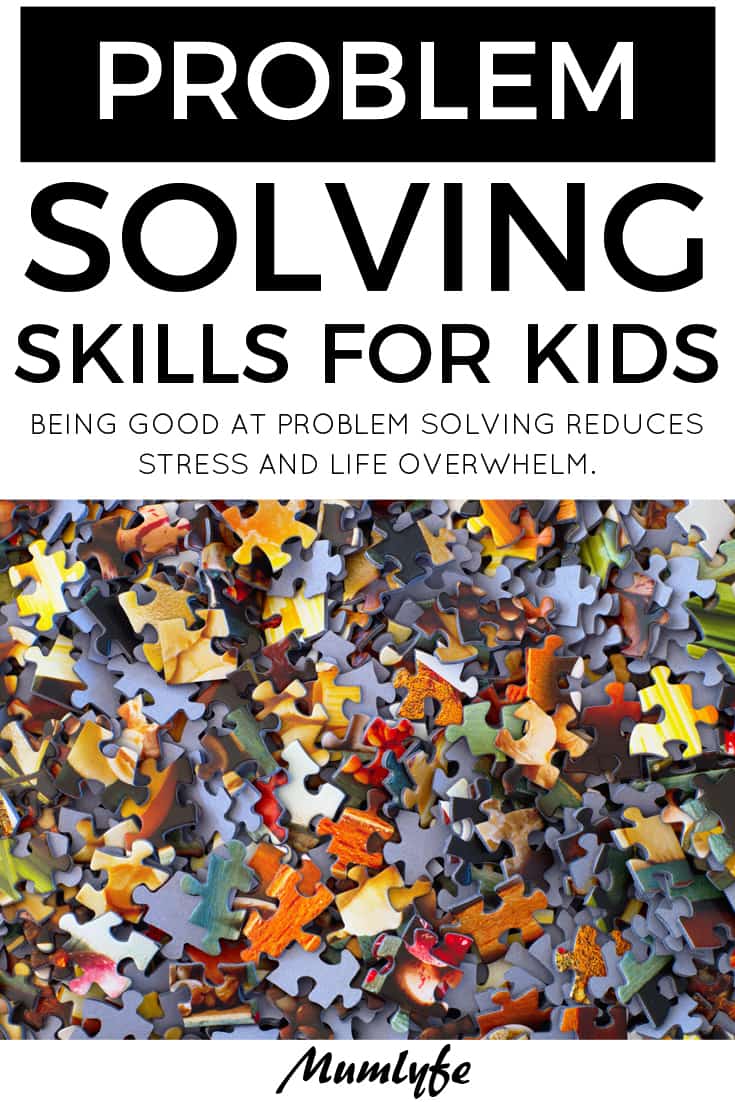When kids have good problem solving skills, they’re less likely to get stressed and feel overwhelmed by life. Problem solving is a coping strategy. We can learn to cope with life’s challenges by thinking about them as problems that generally have solutions. Then it’s a matter of finding a solution to that problem.
As adults some of our problems can be pretty complex and finding the right solution is challenging. When our kids face kid-type problems, teaching them problem solving skills gives them a strategy for life. They can use these problem solving skill as their issues and challenges get more complex as they grow.
Here are some great tips for helping kids to develop their problem solving skills, adapted from Kids Matter.
This will help too: 10 ways to build resilience to help kids cope with life
5 steps to develop kids’ problem solving skills
1. Understand the problem.
To do this we need to really listen to our kids and ask a lot of questions. Kids don’t always have the words they need to adequately explain their problems, even teens can struggle with this. They may not understand the issue they are facing.
It helps to use questions like, ‘When does it happen?’ ‘Who is there?’ ‘Can you give me an example?’ and ‘What are you doing when this happens?’ Asking questions that elicit facts can help you piece together the situation.
2. Brainstorm some solutions.
Once you have a better understanding of the issue, you can work together to come up with solutions. Our job as parents is to ask the right questions to get your child to come up with ideas. Developing problem solving skills is a thinking activity. It doesn’t help your child to develop their thinking skills if you do all their thinking for them.
Related: We need to stop being so available to our kids
Ask questions such as, ‘What do you think you could do?’ ‘What do you think your teacher might suggest?’ ‘How could we solve this problem together?’ Avoid closed questions that they can answer with a ‘yes’ or ‘no’.
3. Test the solutions.
Once you have a plan of action you should encourage your kid to test it. It might help to work out where he or she could garner support if needed, whether from you, a friend at school or a perhaps a teacher or mentor.
The clearer the action plan the easier it will be for your tween or teen to follow through.
To make it easier for your child to follow the plan, talk through each step. Maybe determine a time (lunchtime, after school, when a certain event occurs), and one or two alternative responses that he or she might make depending on the problem itself. The clearer the action plan the easier it will be for your tween or teen to follow through.
4. Question whether it’s resolved.
Once they’ve had a chance to test the solution, check whether it worked. If it did, a little celebration is in order. Definitely a mention of how independent and mature they are to solve their own problem. If things didn’t go to plan it’s time to brainstorm a few other options.
Questions to ask: ‘What went wrong?’ ‘Why do you think that happened?’ and ‘What do you think you could do differently?’ Then start the process again. Remind them that sometimes things take lots of practise. You might need to go back to step one to ensure that you both have a good fix on the nature of the problem.
They are not alone in their problem. There are others around who can and will help.
5. More things you can do.
Model good problem solving yourself – Our kids soak up everything we do (scary I know) and we are their best example of how to approach a problem. If we throw our hands up in the air and despair at the hopelessness of a situation, it will be hard to convince them to do otherwise.
It’s also a great idea to get kids to look for help from others. By doing this they realise that they are not alone in their problem. There are others around who can and will help.
How have you helped your kids to solve problems?

Image by Hans-Peter Gauster


